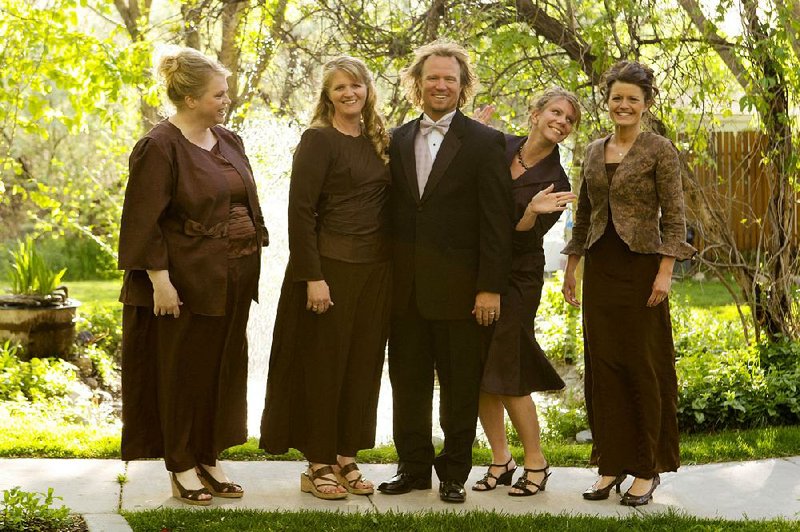SALT LAKE CITY — The U.S. Supreme Court said Monday it won't hear an appeal from the family on TV's Sister Wives challenging Utah's law banning polygamy.
The decision ends the family's long legal fight to overturn a seldom used and unique provision of Utah's law that the Browns and other polygamous families contend has a chilling effect by sending law-abiding plural families into hiding because of fear of prosecution.
The provision bars married people from living with a second purported "spiritual spouse" even if the man is legally married to just one woman, making it stricter than anti-bigamy laws in other states.
The reality TLC cable channel TV show follows the lives of Kody Brown, his four wives and all their children. When it debuted in 2010, it was considered ground-breaking by offering viewers a glimpse into how a plural family navigates the unique complexities of the arrangement.
Utah prosecutors say they generally leave polygamists alone but that they need the ban to pursue polygamists for other crimes such as underage marriage and sexual assault. Only 10 people were charged with violating the law between 2001 and 2011, prosecutors say.
The Utah attorney general's office declined comment on the Supreme Court's denial of the case, which the justices issued without comment.
The saga between the Browns and Utah officials began in September 2010 when the first episode aired of the TLC show, Sister Wives. A county prosecutor opened an investigation, leading the Browns to leave their longtime of Lehi, Utah, in 2011, to settle in Las Vegas where they still live today.
That same year, the Browns filed a lawsuit calling the opening of the investigation government abuse. The case was closed without filing any charges.
In 2013, the Browns scored a key legal victory when a federal judge in Utah ruled the law violated polygamists' right to privacy and religious freedom.
But an appeals court in Denver decided last year that the Browns could not sue because they were not charged under the Utah law. It did not consider the constitutional issues. That ruling will now stand.
